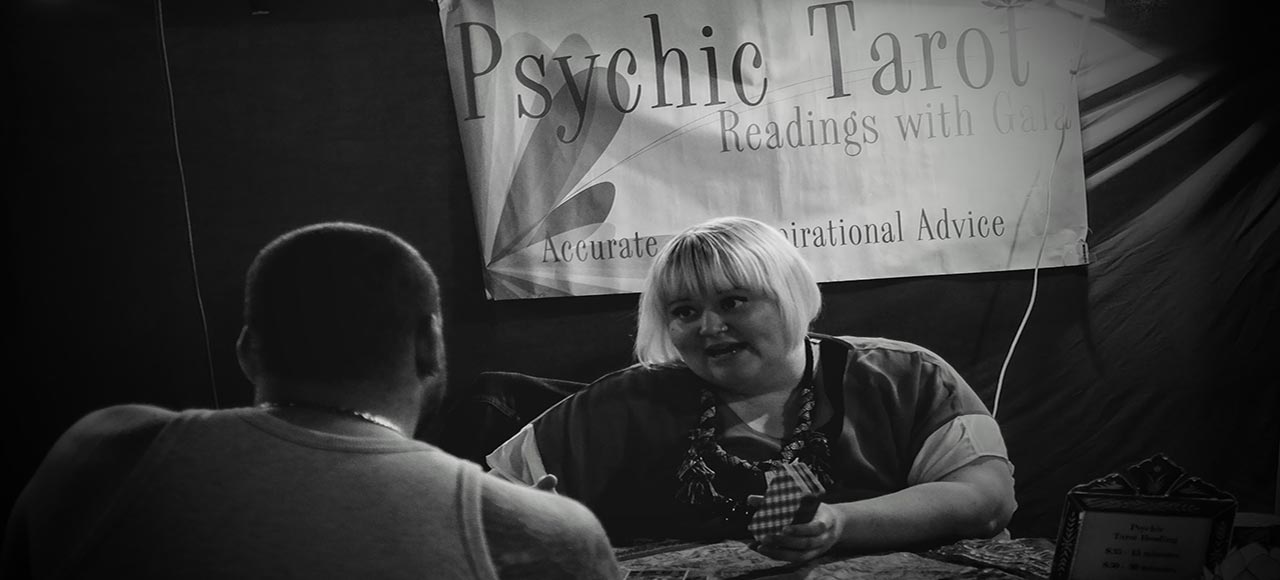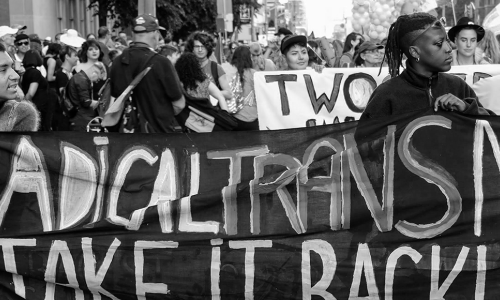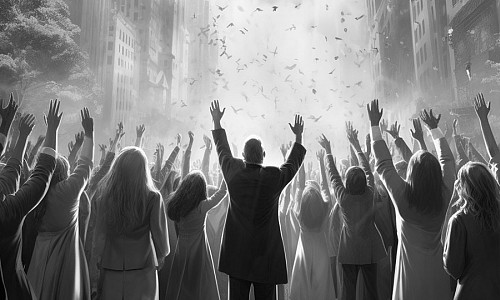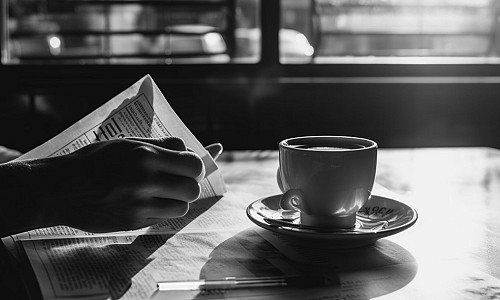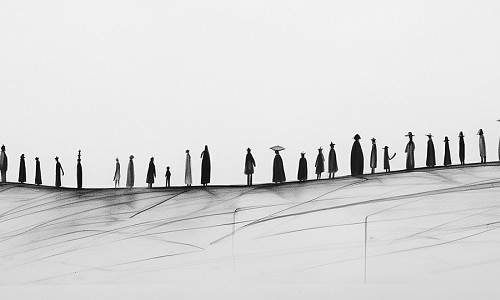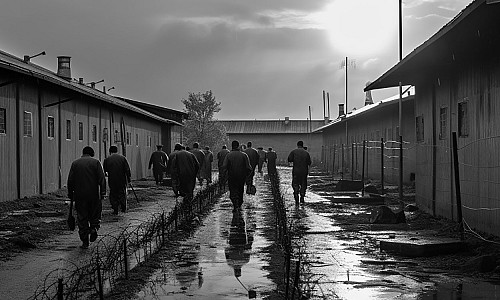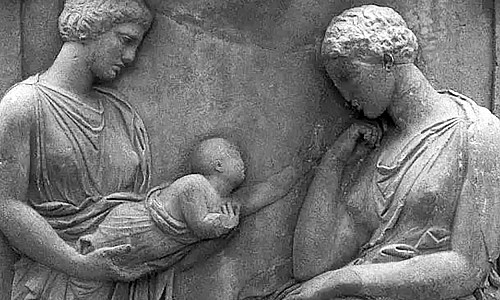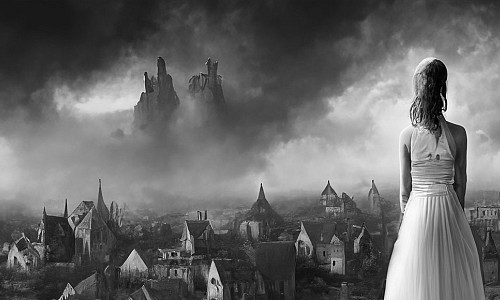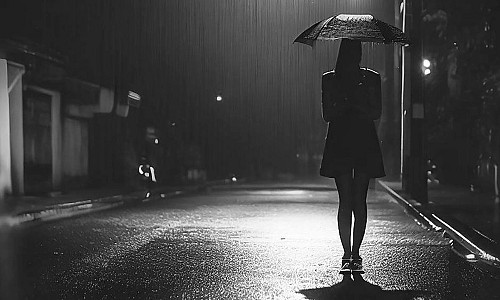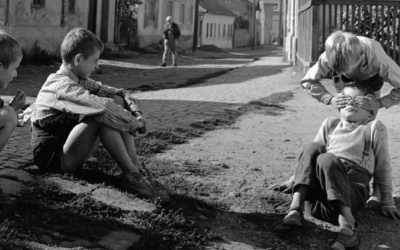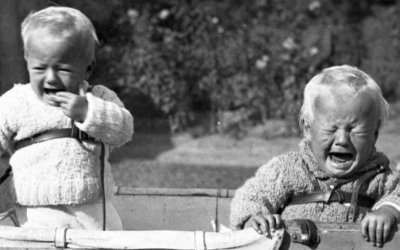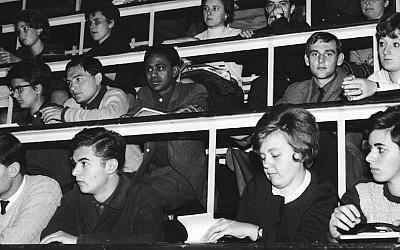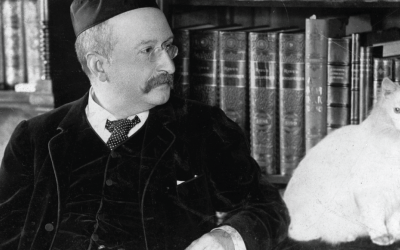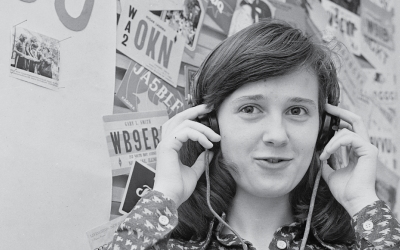Emily Thomas Unearths the Hogwarts of C. D. Broad
Spells, spirits, and salamanders. In a spoof article written in 1925, philosopher C. D. Broad imagined that the University of Cambridge was setting up a degree program in magic, witchcraft, and necromancy. Although the piece was published seventy years before Harry Potter entered the world, it reeks of Hogwarts.
I found this article in the now-discontinued undergraduate Trinity Magazine (VII:6-9). Broad doesn’t tell us why he wrote the piece but presumably it was to amuse his students. Yet, I argue, the inspiration for it may lie in part of Broad’s philosophical research.
Alongside his elder Cambridge colleagues Bertrand Russell and G. E. Moore, Charles Dunbar Broad is best known as one of the “early analytics.” These Anglo-American philosophers rejected idealism, arguing that the world is not ultimately spiritual or mental in nature, and prized logic and science. From the 1920s, fuelled by his interest in consciousness, he began researching psychic and paranormal phenomena.
In the late nineteenth century, philosophers and scientists asked if there was anything to reports of clairvoyants, spiritual mediums, and ghosts. Some reports had been debunked – one medium apparently moved a piano not by psychic power but with a “wonderfully strong and skilful knee.” But other reports were not debunked and, if they were genuine, had the potential to revolutionise our understanding of consciousness.
In 1882, the Society for Psychical Research was set up to understand events described as “psychic” or “paranormal’. Its early members included Henry Sidgwick, a professor of philosophy at Trinity; Oliver Lodge, who partly invented the radio; and Arthur Balfour, who would go on to become UK Prime Minister. Over the next few decades, it attracted many more thinkers. Some philosophers became Society presidents, including William James, Henri Bergson, and Broad.
Perhaps because he believed most of the universe to be material, Broad found human consciousness fascinating. He thought that studying supernatural phenomena could help us understand our minds, and the world. He published over a dozen articles for the Society’s journal, discussing telepathy, foreknowledge, predictive dreams, astral bodies, life after death. He was persuaded that some of these events and abilities were genuine, and used them to support philosophical theories. For example, Broad’s 1937 Aristotelian Society paper “The Philosophical Implications of Foreknowledge” applied psychical research to the philosophy of time. He argued that, as clairvoyants can predict the future, humans can stand in relations to events even if they do not exist.
Broad’s research into the occult fed into the following mock announcement of a new Cambridge undergraduate “tripos” – degree course. The result is darkly, ominously charming.
“Necromantic Tripos,” by C. D. Broad (abridged)
Part I of the Necromantic Tripos will consist of two papers on Astrology, two on Alchemy, two on the Elements of Magic, and a paper of Essays. There will also be practical examinations in each of the three subjects.
Part II will consist of the following Sections: (A) The Theory and Practice of Divination. (B) Advanced Alchemy. (C) Witchcraft and Black Magic. In each Section four papers will be set, and there will be a practical examination.
The Schedule and set books for Part II are as follows:
SECTION A.
1. Astrology; genethliac, horary and judicial. The Radical and the Progressed Horoscope. Theory of Directions. The Pars Fortunae, the Hyleg and the Anareta. Influence of Comets. Planetary and Olympic Planetary Sprits.
2. Geomancy and the Theory and Construction of Geomantic Talismans.
3. Cartomancy. The Esoteric Meaning and Practical Uses of the Tarot of the Bohemians.
4. Scrying. The Crystal and the Ink-Pool. Second-Sight.
5. Rhabdomancy. The Divining-Rod. Theory and Practice of Dowsing for Water, Oil and Minerals.
6. Miscellaneous Methods. The Teraphim. Urim and Thummim. Inspection of Entrails. Flight of Birds.
SECTION B.
1. Evocation of Elementals. Physiology and Psychology of Sylphs, Gnomes, Salamanders, and Undines.
2. Inorganic Alchemy. The Alkahest or Universal Solvent. Potable Gold. Preparation and Properties of the Philosopher’s Stone. Projection and Transmutation.
3. Organic Alchemy. Preparation of Unguents (a) for Locomotion, (b) for Bodily Transformation. Hands of Glory, their Preparation and Uses.
4. Love Philtres. The three varieties of Hippomanes. Preparation and specific properties of each.
5. Bio-alchemy. Methods of Rejuvenation. The Elixir of Life. Generation, Nurture and Uses of Homunculi.
SECTION C.
1. Familiars. Their Evocation, Nutriment and Treatment in Health and Disease. Incubi and Succubi.
2. Supernatural Locomotion. The Aerodynamics of the Broomstick. The Use of the Eggshell for transpontane Locomotion. Levitation and Bilocation.
3. The Law of Contract as applied to Compacts with the Devil. Discussion of selected Cases. The Use of the Long Spoon.
4. Organisation and Ritual of Sabbats. Ceremonial of the Walpurgis Night. Theory and Practice of the Black Mass. Interpretation and Uses of Grimoires.
5. General Theory of Putting and Lifting Curses. Storm-raising, Crop-blasting, and the Use of the Evil Eye. Construction, Liquefaction, and Transfixion of Mommets.
6. Theory and Practice of Vampyrism and Lycanthropy. Properties of Ointments, of Wafers, and of Garlic.
SPECIAL COLLEGE RULES.
The attention of members of the College in statu pupillari is called to the following regulations applying specially to candidates for the Necromantic Tripos which have been made by the Council.
INCANTATIONS.
Incantations may be performed in College only on condition that they are inaudible outside the operator’s room. This is possible if the operator moves widdershins round a suitably drawn pentagram and the window be kept shut.
EVOCATION OF ELEMENTALS.
Owing to the terms of the fire-insurance on the College buildings it is necessary to prohibit absolutely the evocation of Salamanders in rooms in College. It is an immemorial rule of the College that the baths are “places for ablution and not for the evocation of Undines.”
INFERNAL COMPACTS.
No member of the College may contract himself either temporarily or eternally to the Devil without first satisfying his Tutor that he has obtained permission in writing from his parents or guardians.
Members of the College who propose to enter into such contracts are strongly advised to consult Mr Hollond before fixing their signatures to the document. Grave inconvenience in this world and the next may often be avoided by this simple precaution.
FAMILIAR SPIRITS.
A member of the College may not, without permission of his Tutor, keep a Familiar in his rooms in College. Should the Familiar take the form of a cat or (in the case of undergraduates living in the New Court) a tortoise, permission will generally be granted. Spectral Hounds come under the general rule against keeping dogs in College.
No member of the College may suckle a Familiar in public; nor may he introduce his Familiar into the Hall, the Library, or the Chapel.
EVOCATION OF PLANETARY SPIRITS.
No undergraduate member of the College may evoke a Planetary Spirit. Bachelors of Arts may evoke ordinary Planetary Spirits, but the privilege of evoking Olympic Planetary Spirits is strictly confined to Heads of Houses.
HOMUNCULI.
Homunculi may be kept in rooms in College during term, provided they be enclosed in stout and properly stoppered bottles. Bottles of a kind suitable for this purpose may be obtained from the Kitchen Office. The owner of an Homunculus is expected to take it away with him during vacation or to make adequate provision for its maintenance during his absence.
The manure-heap in the Fellows” Garden may not be used for the incubation of Homunculi without special permission of the Garden Committee, which will be granted only under very exceptional circumstances.
MOMMETS.
No member of the college may make, have in his possession, melt, or transfix a mommet of the Master or of any of the Fellows, Chaplains, Librarian, or Organist. Bedmakers have instructions to report immediately to the Dean of College the presence of any mommet that they find.
RIDING ON BROOMSTICKS.
No undergraduate in his first year may keep a broomstick for purposes of equitation or borrow a broomstick for such purposes.
Undergraduates of higher years may keep broomsticks for this purpose provided they obtain a license from the Motor Proctor.
The use of the College roofs as starting or landing-places is strictly forbidden.
LEVITATION AND BILOCATION.
Levitation is strictly forbidden in Hall, Chapel, the Library, and during lectures.
BLACK MASSES.
The Ante-Chapel is available from time to time for the celebration of Black Masses. All arrangements for such celebrations must be submitted to the Dean of Chapel and approved by him. Triangular wafers (black, red or assorted) and sulphur candles can be obtained from the College Kitchens, but celebrants are expected to provide for themselves any other materials that may be necessary.
It must be clearly understood that the use of the Ante-Chapel is a privilege and not a right, and it is expected that celebrants will show their appreciation of this concession by leaving the building in a clean and tidy state.
The small Writing-Room next to the Senior Combination Room is available at nearly all times for the private devotions of Fellows of the College who are Satanists.
VAMPYRISM AND LYCANTHROPY.
The number of blood stains and human bones to be seen in the courts of late shows that breaches of the rules against Vampirism and Lycanthropy in College have become more numerous than they used to be, and that it is only by the maintenance of these rules that tidiness can be insured.
Emily Thomas is associate professor of philosophy at Durham University, and an Honorary Fellow at ACU’s Dianoia Institute of Philosophy. Her most recent book is The Meaning of Travel: Philosophers Abroad (OUP, 2020). Her interests mainly lie in the history of philosophy.
You might also like...


